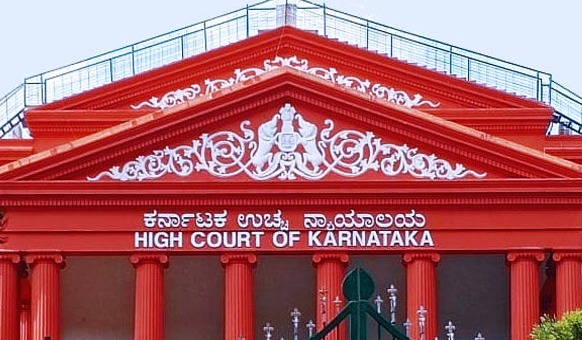
The Karnataka High Court on Monday ordered the prison officials to consider a woman’s petition and release a murder convict on parole leave so that he can marry her, or else she will be given in marriage to someone else.
A single-judge court headed by Justice M Nagaprasanna granted Neetha G and Rathnamma’s petition and ordered the authorities to release the convict, Anand.
“The respondents 2 and 3 are directed to consider the petitioners’ representations and release the detenue/Anand (convict Prisoner No.11699) on parole from the forenoon of April 5, 2023, until the evening of April 20, 2023,” it stated.
It added, “The respondents 2 and 3 shall stipulate strict conditions, as are usually stipulated, to ensure the detainee’s return to the gaol and that he shall not commit any other offence during the period of parole.”
Neetha and the convict’s mother had approached the court, requesting that the authorities consider their representations on March 25, 2023 for the release of the detainee on parole for a time of 15 days.
Neetha argued that she is in love with the detainee and wanted his release because she was afraid, she would be given in marriage to someone else. While the mother stated that, as an elderly person suffering from several ailments, it is her desire to see the 2nd petitioner and the detenue – Anand married and thus, both have submitted their representations.
The petitioners’ counsel contended, “The detainee’s release is critical; otherwise, he will lose the love of his life. He cannot endure the agony of his love marrying someone else while incarcerated, so he seeks emergency parole on any condition imposed on the petitioner.”
The government advocate, on the other hand, stated that “there is no provision for the grant of parole to marry. It would have been a different situation if the detenue had wished to attend someone else’s wedding. The objective of parole as obtaining under Clause 636 of the Prison Manual would not benefit the detainee for his release. Sub-clause 12 of Clause 636 of the Prison Manual grants the Head of the Institution the authority to award parole in the event of any other extraordinary circumstances.”
The bench cited the decisions of the High Court of Rajasthan in the case of Sanjay alias Gafudiya v. State of Rajasthan and the Bombay High Court in the case of Cecilia Fernandes v. Inspector General, Panaji, in which the courts granted emergency parole to a detainee for the purpose of facilitating marriage.
“I deem it appropriate to allow the petition, owing to the peculiar facts and circumstances of the case and in the interest of justice,” it added.
It also stated that respondents 2 and 3 must impose strict conditions in order for the detainee to be returned to the gaol and to ensure that he does not commit any other crimes during his parole period.




